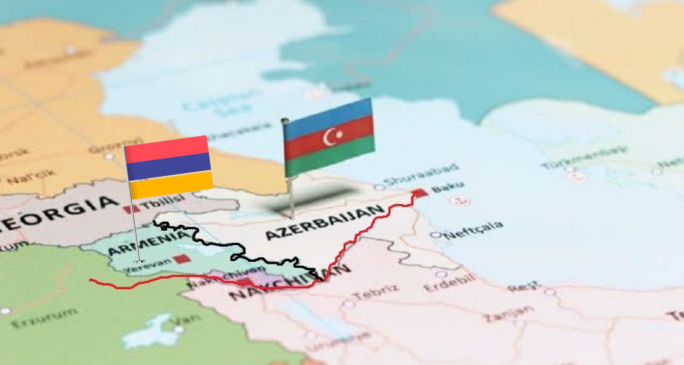Peace and profit, Armenia’s hopes for access to Azerbaijan’s market

Armenian Parliament Speaker Alen Simonyan recently made a series of remarks on the future of Armenia-Azerbaijan relations, reflecting both pragmatism and expectation. “Most Armenians do not want to see the face of an Azerbaijani border guard, and this is bad, because we are neighbors. Over time, this will also disappear,” he stated, pointing to the inevitability of closer contact between the two societies.
Simonyan went further, underscoring the economic dimension of peace. “The same Armenians and Azerbaijanis are doing business together in Moscow, making friends, going to each other’s birthdays,” he said, stressing that normalization could replicate such ties within the South Caucasus. According to him, “Just five minutes after the peace agreement, citizens of Armenia and Azerbaijan will start trading, communicating in various forms. This is inevitable. Armenians and Azerbaijanis will trade with each other, we will have a single Armenian-Azerbaijani commodity market. There will be Azerbaijani products in our stores, and Armenian products in Baku and other cities. This is inevitable.”
Yet, as economist Eldeniz Amirov explained to Azernews, the economic reality behind these statements reveals asymmetry. “The speaker of the Armenian parliament also said that ‘Armenians will be able to buy Azerbaijani gasoline cheaper and a single commodity market will be created between the two countries.’ He knows that the issue does not end with gasoline. The establishment of economic ties will be more beneficial to Armenia. Azerbaijan's main exports are oil and gas, which are also wanted by quite a few people. That is, we can sell oil and gas without Armenia.”
Armenia, however, has developed a diversified non-oil export base. “This country has fantastically increased its non-oil production. Last year, it increased by 53 percent to $13 billion, and its gold exports increased more than 3 times to $5.6 billion. Silver exports increased 12 times, and jewelry exports increased by 80 percent. They even started producing and exporting telephones and electronic equipment, the growth in this area was 25 percent, and they exported products worth $672 million. All of these products can enter the Azerbaijani market,” Amirov noted.
Agriculture is another area where Yerevan could gain substantially, with Armenian fruits, vegetables, dried fruits, potatoes, and wine already expanding in international markets. “In other words, Azerbaijan is an excellent market for Armenia,” the expert stressed.
This dynamic is already visible with other regional producers. “Currently, the products of the Central Asian republics are rapidly increasing in the markets of Azerbaijan. Electrical equipment, heaters and other products from Uzbekistan are already widely sold. This fact shows that Azerbaijan, as a country largely dependent on imports, is an attractive market for any country with production capacity. Armenia's access to the Azerbaijani market can turn into great profits for it. As a result, the accelerated production areas in Armenia will develop further at the expense of Azerbaijan,” Amirov said.
Looking ahead, he suggested that Yerevan may already be considering scenarios where Armenian industries leverage Azerbaijani raw materials and re-export higher-value products. “Perhaps the Armenians think that 5–10 years after the peace treaty, we can buy oil from Azerbaijan, produce AI95 and sell it to them. Or they think that we will import a lot of iron, aluminum and other useful resources from Azerbaijan, and then sell what we make from it back to them. Maybe they are already jealous of Uzbekistan, wondering why we are on the direct border with Azerbaijan, but the Azerbaijani population buys water heaters produced in Uzbekistan? So, Simonyan has not yet expressed most of what he thinks.”
In this context, while peace and open trade will undoubtedly foster regional growth, the balance of benefits may tilt more toward Armenia. For Azerbaijan, the challenge will be ensuring that such cooperation is built on equal footing and does not disproportionately advance Yerevan’s economy at Baku’s expense.
Here we are to serve you with news right now. It does not cost much, but worth your attention.
Choose to support open, independent, quality journalism and subscribe on a monthly basis.
By subscribing to our online newspaper, you can have full digital access to all news, analysis, and much more.
You can also follow AzerNEWS on Twitter @AzerNewsAz or Facebook @AzerNewsNewspaper
Thank you!

